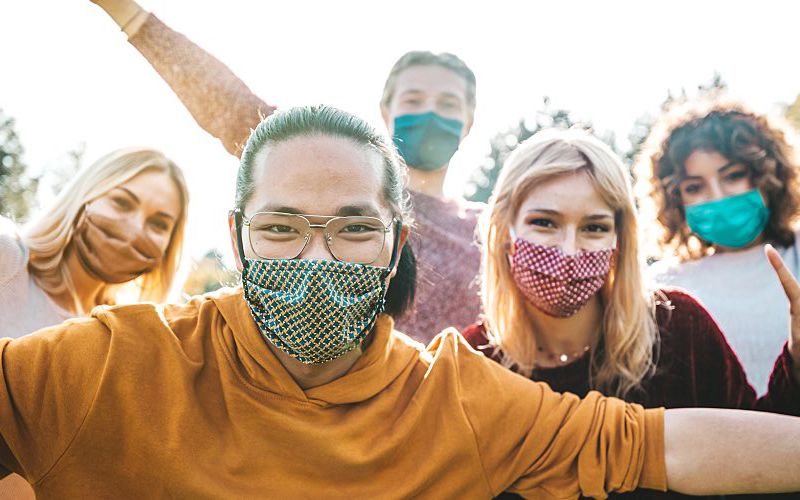Preparing for Veterinary Conferences and In-Person Networking


Humans are social creatures, and there are some things that just work better face-to-face. For instance, my team finds it easier to explain the benefits of routine bloodwork or help clients through a euthanasia decision when they can physically sit and engage with them.
Personally, I've always felt the same about veterinary conferences. I love to hear the speakers and see their presentations, but it is talking with peers, hearing their experiences, and brainstorming how we can implement new ideas that I've missed most. With in-person conferences now available again or on the horizon, it's time to consider how to safely get back together and make the most of our opportunities.
FREE HANDBOOK: How to boost team morale. Candy helps, too
What Are the Guidelines?
Before you travel to your conference, it's worth considering the Centers for Disease Control and Prevention (CDC) guidance, which varies significantly depending on your vaccination status.
Vaccinated individuals: There are significantly fewer restrictions for those who are vaccinated; for the most part, you can return to normal activities. Regardless of your status, though, you will be required to wear a mask on any form of public transport, including planes, trains, and buses. Even if you travel by car to the conference, many localities are reimposing mask requirements, so bring some with you. Within the venue, there are no federally recommended restrictions for now, and you do not need to test or quarantine before or after travel.
Unvaccinated individuals: The CDC has clear guidance: "Delay travel until you are fully vaccinated." Although there are recommendations for unvaccinated people to travel, this is only for unavoidable trips — a category that probably doesn't extend to attending a conference. If you do decide to travel, they recommend a viral test one to three days before travel, three to five days after travel, and a quarantine of up to 10 days. While away, you should also maintain a distance of 6 feet from others while indoors, wear a mask that covers your nose and mouth, and wash your hands regularly.
In addition to federal rules and guidance, many states and cities are imposing their own requirements, as are venues. The Western Veterinary Conference 2021, for example, is going to require masks and temperature checks for access to the conference shuttles and facilities. The current spread of the Delta variant and the rise of COVID-19 cases means that restrictions will continue to evolve, so it's important to keep up to date.
Making the Most of the Conference
One of the key benefits of attending the conference is being able to meet and talk with other veterinary professionals. I've found these strategies help me build my network and maximize the benefits:
- Attend events outside of the normal conference hours, whether an evening dinner or event hosted by a sponsor. It can be a great way to meet people in a more relaxed setting.
- Take the time to go through the exhibit hall. You may run into people looking at the same things, offering a great opportunity to share ideas and experiences.
- If you've traveled with others from your practice or are meeting up with friends, make a point to break away from that group for a while; it's hard to meet new people when you're already ensconced in a large group.
- You don't have to spend the entire event talking shop. Take and exchange some business cards so that you can catch up after the conference and continue to learn from one another.

Understanding Your Remote Options
Ultimately, the decision to travel or not is a personal one, and not everyone is ready to do so. Many conferences still have options to attend remotely, and vendors likely have online learning resources that can provide many of the benefits without being on-site. Most of the big four veterinary conferences in September this year have a remote option:
- Western Veterinary Conference, Sept. 6-9. A hybrid option where 20 hours of continuing education-approved content will be available remotely.
- International Veterinary Emergency and Critical Care Symposium, Sept. 11-15. Primarily in person, but with live streaming of four tracks for virtual attendees.
- Connexity by the American Animal Hospital Association, Sept. 22-25. In-person-only for the main conference, but a small, virtual option will take place in November.
- Southwest Veterinary Symposium, Sept. 23-26. In-person and virtual options. Recorded lectures will be available for six months after the conference date.
There are other ways to stay up to date while building a network of connected professionals. VHMA, for example, provides message boards where you can ask questions and get ideas from others working in the field, while vendors provide resources and education on the latest developments in the industry.
Never forget that your safety and that of your team is your top priority, and ultimately as managers, we must balance the opportunities of in-person conferences with the issues created by the COVID-19. As the virus continues to evolve, stay on top of the latest advice, follow official guidance, and hopefully enjoy getting out and making new connections.






